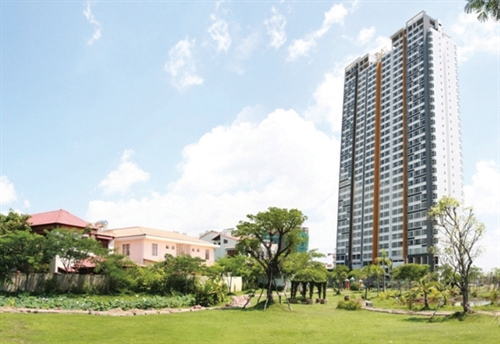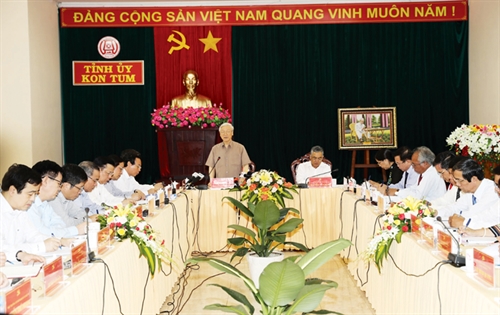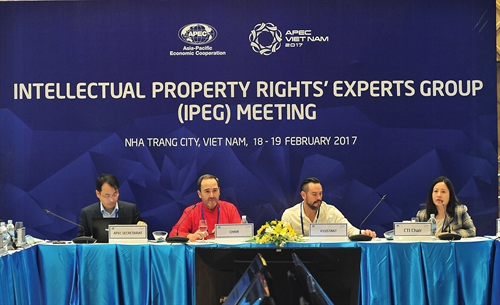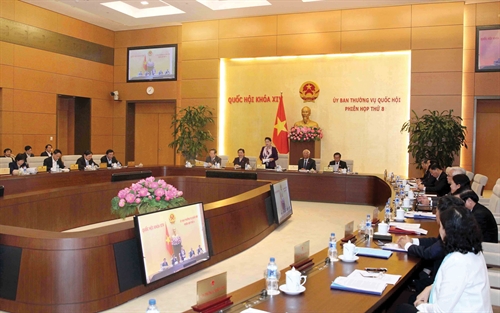Nguyen Hong Hai
Deputy General-Director
Department of Civil-Economic Laws, Ministry of Justice
Legal nature of usufruct
Usufruct is a right newly added to the 2015 Civil Code (the Code). Along with easement (servitude) and the right of superficies, usufruct is placed in the group of other rights over property.[1] The connotation of usufruct defined in the Code is basically similar to that provided in other civil codes in the world. By legal nature, usufruct is a type of real rights over others’ property for a specified period. The owner of a property may allow either at his own will or as prescribed by law another person to use and benefit from his property while still retaining the right to dispose of the property.
Social and economic significance of usufruct
First, usufruct offers people more choices in exploiting and using their properties, thus ensuring the exploitation and use of properties as well as limiting risks to their owners and stably maintaining relevant relations. For instance, the owner of a property can, instead of transferring the ownership rights over his property to his children or relatives, grant usufruct over the property to these persons so that they can earn income from such property for their life time or a specified period. Otherwise, the owner may transfer the ownership rights over the property to his children or relatives while holding the usufruct over the property until he dies.[2] He can also transfer the ownership rights over his property to one of his children while granting usufruct over it to another child for life time or a specified period.[3] The owner of literature or artistic works may grant usufruct to an organization or another person for making more benefits from these works or using these works more properly in publishing, distribution or art performance activities. The owner of holdings in a business may transfer usufruct over such holdings to another person who has better business capacity in order to harmonize the interests of the owner and usufructuary through maximizing the economic value brought about by such holdings, etc.[4]
 |
| People register for land use rights certificates at the one-stop-shop division of the Office of the People’s Committee of Ca Mau city__Photo: Kim Ha/VNA |
Second, usufruct can help the State better capitalize on the value of public property through granting the right to exploit minerals or natural forests or forests planted with state budget funds or the fishing right to the people, etc.[5]
Usufruct can also help the State create a more appropriate legal mechanism to protect the disadvantaged in civil relations. For instance, if the division of inheritances seriously affects the life of the living spouse and the family, the court may restrict the division of inheritances and grant usufruct to the living spouse over the inheritances for a specified period. Or, to settle housing difficulties upon divorce, the court may permit the divorcee with housing difficulties to stay in the other’s house for a specified period, etc.[6]
Differences between usufruct and the rights to borrow and rent property
In civil relations, not only the usufructuary but also the property borrower or lessee has the rights to use and benefit from others’ property under a property borrowing or lease contract.[7] However, in terms of legal nature, there are fundamental differences between usufruct and the rights to borrow and rent property.
Usufruct is a real right under which the usufructuary can directly hold and control a property under the ownership of another person for use and benefit from such property under the Code and relevant laws, regardless of the will or act of the property owner. Whereas, the rights to borrow and rent property are established and realized under contracts. The borrower or lessee may only exercise his rights and perform his obligations as committed with the lender or lessor according to the latter’s will.
So, unlike the property borrower or lessee, the usufructuary may establish, exercise and terminate his right and have it protected on the principles of real rights.
For example, usufruct remains effective even in case the owner transfers the property burdened with the usufruct to another person, unless otherwise provided by the Code or a relevant law.[8]
The usufructuary of a property may perform any acts within the scope of the right referred to in the Code or relevant laws as long as such acts do not cause damage to or affect the national interests, people’s interests, public interests or lawful rights and interests of the property’s owner or other persons.[9] He may himself or permit another person to use and enjoy the property burdened with the usufruct, and even lease the usufruct over the property. He is also entitled to obtain the yields from the property within the validity period of this right. Should the usufruct terminate while the time for enjoyment of yields has not yet come, the usufructuary may, when this time comes, enjoy the value of the yields in proportion to the period during which he has the usufruct. Meanwhile, the borrower or lessee may only use the borrowed or leased property according to its utilities and for the already agreed purpose, and may not further lend or lease the property to another person without the consent of the lender or lessor.
No one may be illegally restricted in or deprived of his usufruct. Even the owner may not reclaim his property from the current holder of the usufruct over such property. The usufructuary may protect, and prevent any person from infringing upon, his right by lawful measures; he may also reclaim the property from the person who possesses, uses or benefits from the property without a legal basis.[10] Contrarily, if the lender has an urgent or unexpected need to use the borrowed property, he is entitled to reclaim the property even if the borrower has not yet achieved the purpose of the borrowing, but has to give a reasonable advance notice of his intention. If another person possesses, uses or benefits from the leased or borrowed property without a legal basis, then the owner of such property, but not the lessee or borrower, has the right to reclaim the property.[11]
The usufructuary has to bear risks to the property within his scope of usufruct, unless otherwise agreed upon with the property owner or otherwise provided by the Code or relevant laws.[12] Meanwhile, the borrower or lessee has to bear risks to the borrowed or leased property only during the period of late return of the property.
As analyzed above, as usufruct is a very powerful right, making this right public is of special importance for ensuring stability against property-related changes, protecting the rights of bona fide third parties and guaranteeing the stability of other relations involving this right. Such publicization may be performed in accordance with law, through registration or disclosing the holding or control of the property burdened with the usufruct.
Scope of usufruct[13]
The Code does not specify the scope of usufruct but, based on the provisions on property, holders and validity period of usufruct, the following can be drawn out:
Usufruct may be established over all kinds of property referred to in the Code, such as tangible immovable property (land, houses, construction works, forests, plants, etc.) or intangible immovable property (land use rights, right of superficies, etc.[14]), tangible movable property or intangible movable property. More specifically, usufruct may be established on objects, banknotes, valuable papers or property rights. Notably, it is also legal to establish usufruct on expendable objects and non-expendable objects.[15], [16]
As the scope of usufruct is wide, it is suggested specific mechanisms for exercise of usufruct for each kind of property be created by specialized laws (on land, housing, forest protection and development, fisheries, minerals, water resources, enterprises, investment, securities, credit, banking, etc.) in specific relations.[17]
Similarly, while the Code has no specific provisions on holders of usufruct, through its provisions on bases for establishment of usufruct, it can be understood that all individuals and legal persons (including foreign ones) may enjoy usufruct over others’ property in cases prescribed by law, agreed upon with property owners or designated by property owners in their wills. In certain cases, usufruct may only be granted to individuals but not to organizations because of its nature as the right to stay or usufruct over inheritances in the period when the division of inheritances is restricted under the court’s decision. If the usufructuary is required by law to have legal capacity and civil act capacity suitable to the usufruct, the usufruct must be exercised through a lawful representative or it will not be established and exercised if such requirement is regarded as a condition for recognizing the effect of this right. If the property owner transfers a usufruct to a household, a cooperative group or an organization without legal person status, then each individual member of such entity can hold the usufruct.
As stated in the Code, the validity period of a usufruct will be agreed upon by the parties or prescribed by a law but will last until the first usufructuary dies or ceases its existence, which must, however, not exceed 30 years. If the usufruct is transferred to an individual for a specified period (e.g., 50 years) under law, agreement or testament, but this individual dies before the expiration of such period, then this right will terminate on the time the usufructuary dies as usufruct is not an inheritance. For a legal person that has enjoyed a usufruct for full 30 years, its usufruct will automatically terminate; if the legal person dissolves before the expiration of the 30-year period, its usufruct will terminate on the date of its operation termination. To-be-inherited rights and obligations of a legal person having a usufruct after its operation termination do not include this right.
Bases for establishment and effect of usufruct[18]
Under the Code, usufruct will be established in accordance with a law, called legal usufruct, and at the will of the property owner (under an agreement or a testament), known as agreed usufruct. The Code does not specify conditions for the establishment of a usufruct to become effective at the owner’s will, so it can be understood that the Code’s provisions on conditions for transactions (contracts and testaments) to become effective will apply. If specialized laws (on land, housing, forests, securities, or minerals) have different provisions, such provisions will apply if they do not breach the fundamental principles set forth in Article 3 of the Code.
Usufruct will be established from the time of receipt of the transferred property, unless otherwise agreed upon or otherwise prescribed by a relevant law. The established usufruct will take effect for all individuals and legal persons, unless otherwise prescribed by a relevant law. So, the Code has explicitly distinguished the effect of usufruct between the property owner and usufructuary and between the usufructuary and a third party. In the course of drafting the Code, there were two sets of opinions on the effect of usufruct. Some held that to ensure publicity, the Code should provide the time when usufruct becomes effective for a third party in the spirit that a legal usufruct is not subject to registration, while an agreed usufruct must be registered in order to publicize the establishment of this right according to the will of the involved party and the time of effect of such right will arise from the time of registration.[19] Others opined that in the context that Vietnam already has a separate legal system regulating relevant civil relations, the Code’s provisions on the effect of usufruct are reasonable.-









